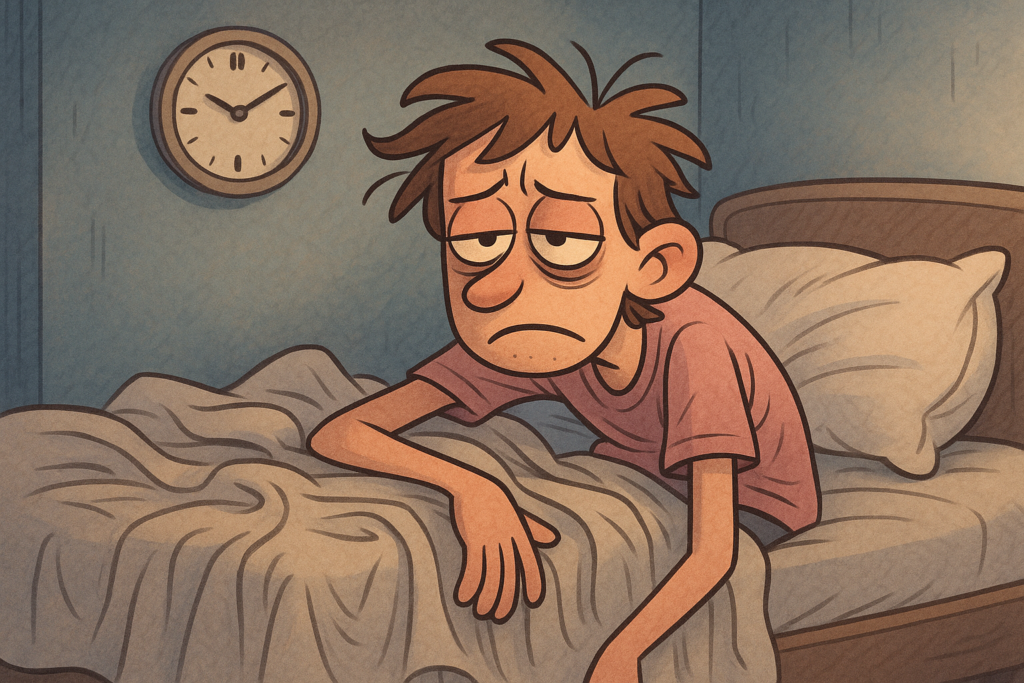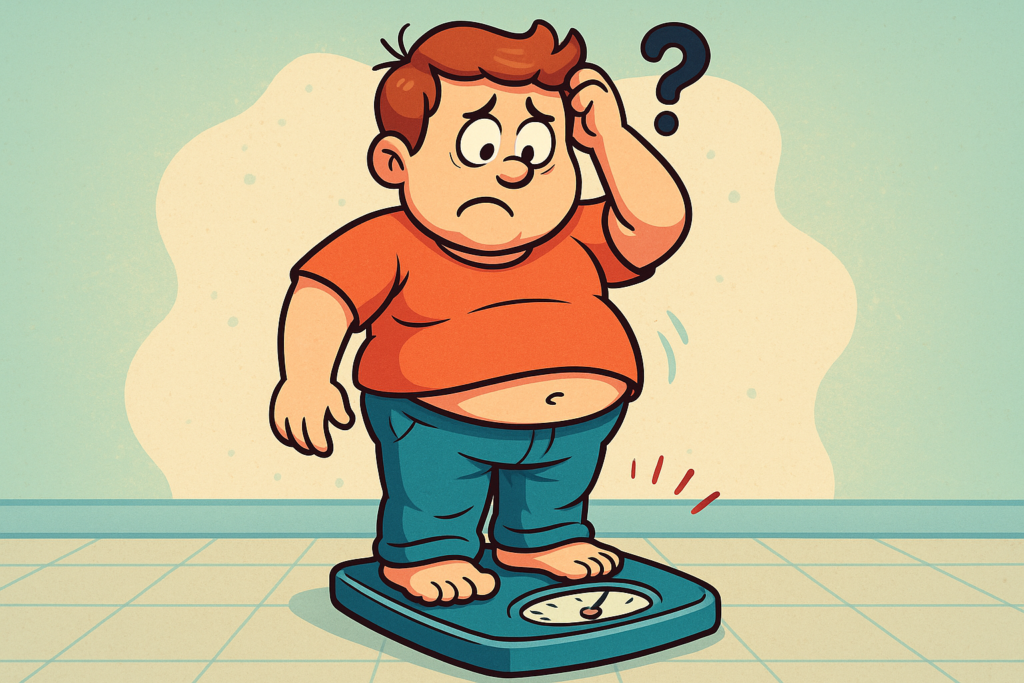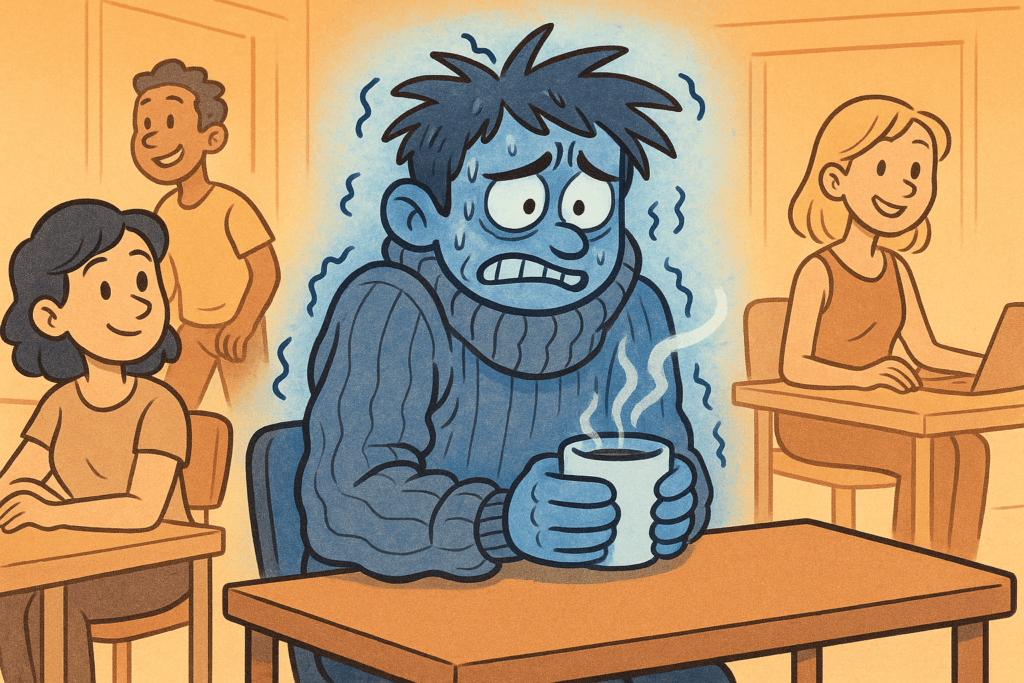Thyroid fatigue symptoms are more common than you might think, but many people don’t recognize them or understand what causes them. A large number of people struggle with constant fatigue and sluggishness without realizing that the root cause could be thyroid-related. If you’re constantly feeling tired or gaining weight without any apparent reason, these could be the thyroid fatigue symptoms. In this post, we will dive into the symptoms of thyroid fatigue and how they can be managed.
Understanding Thyroid Fatigue symptoms
Your thyroid is one of the most important glands in your body. It’s located in your neck and shaped like a butterfly. It produces hormones (T3 and T4) that regulate metabolism, energy, and overall bodily functions. When your thyroid doesn’t produce enough of these hormones, it can lead to a slowdown in body functions and cause fatigue. Thyroid fatigue is not the typical tiredness you feel after a long day; it’s an ongoing, persistent exhaustion that doesn’t go away, even after a good night’s sleep.
Common Thyroid Fatigue Symptoms
1. Constant Tiredness
Thyroid fatigue symptoms start with the constant feeling of tiredness. This isn’t the usual tiredness that comes after a busy day, but rather a fatigue that lingers even after a full night’s sleep. If you wake up feeling as though you didn’t sleep at all, it may be a sign that your thyroid is underperforming.
For example, you might wake up in the morning feeling like you haven’t rested at all, no matter how many hours you slept. You may feel like you need to sleep again to get any relief—this is a key symptom of thyroid fatigue.

2. Unexplained Weight Gain
Among the other thyroid fatigue symptoms, the weight gaining is the second most popular symptom. If you’re gaining weight without any clear reason, such as changes in your diet or exercise routine, this could also be a sign of thyroid issues. When thyroid hormones are low, your metabolism slows down, and your body burns fewer calories. This can lead to weight gain, even if you haven’t changed your eating or exercise habits.
For instance, you may notice your clothes starting to fit tighter even though you’re eating the same amount and exercising as usual. This unexplained weight gain could be due to thyroid hormone imbalance.

3. Mood Swings and Depression
Thyroid hormones also play a major role in regulating your mood. When thyroid hormone levels drop, they can affect your emotional state, leading to mood swings, anxiety, and even depression.
For example, one day you might feel perfectly fine, and the next, you could experience feelings of sadness or anxiety without any clear cause. If this happens frequently, it could be due to thyroid dysfunction.
4. Dry Skin and Hair
Thyroid problems can have an impact on the health of your skin and hair. When your thyroid produces fewer hormones, your skin may become dry and rough, and your hair can become brittle or start falling out.
For example, your skin may feel dry and flaky, even if you’re using moisturizers regularly, and your hair may start to thin and break. These are common signs that could be related to thyroid issues.
5. Sensitivity to Cold
If you often feel cold, even when others around you are comfortable, it could be a sign of thyroid fatigue. Thyroid hormones play a crucial role in regulating body temperature, and when these hormones are low, your body has difficulty maintaining a normal temperature, making you feel unusually cold.
For instance, you may be sitting in a room where others are fine with the temperature, but you’re wrapped in a blanket because you can’t seem to warm up. This increased sensitivity to cold is a typical symptom of hypothyroidism.

6. Constipation Problems
Thyroid fatigue can also affect your digestive system, leading to constipation. Low thyroid hormone levels can slow down your digestive process, resulting in difficulties passing stools.
For example, despite eating a fiber-rich diet and drinking plenty of water, you might struggle with constipation. This is another common symptom associated with thyroid dysfunction.
How Much Glutathione Per Day: A Complete Guide to Dosage and Benefits
7. Muscle Weakness and Joint Pain
People with thyroid fatigue often experience muscle weakness, joint pain, and stiffness. Low thyroid hormones can weaken your muscles and make them feel sore, and you may notice that everyday activities become more challenging.
For example, simple tasks like lifting groceries or climbing stairs might feel like more effort than they used to. This muscle weakness and joint pain are often caused by an underactive thyroid.

How to Manage Thyroid Fatigue
If you’re experiencing thyroid fatigue symptoms, it’s important to visit a healthcare provider for proper testing and diagnosis. A blood test can help determine your thyroid hormone levels and confirm if an underactive thyroid is to blame for your symptoms.
- Medication: If you are diagnosed with thyroid issues, your doctor may prescribe thyroid hormone replacement therapy, such as levothyroxine, to help normalize hormone levels and reduce fatigue.
- Diet and Supplements: A balanced diet with nutrients like iodine, selenium, and zinc can support thyroid health. Foods like fish, nuts, and seaweed are rich in these essential nutrients.
- Exercise: Regular physical activity, even if it’s just light exercise like walking or yoga, can help boost energy levels and combat fatigue. Start with light exercises and gradually increase the intensity.
- Adequate Sleep: Ensure you’re getting 7-8 hours of good sleep each night. Sleep is essential for hormone production and overall health, and it can help reduce feelings of fatigue.
Conclusion
Thyroid fatigue is a real condition that can affect many aspects of your life, from your physical health to your emotional well-being. If you’re experiencing symptoms like constant tiredness, unexplained weight gain, dry skin, or joint pain, it’s time to get your thyroid checked. With the right diagnosis and treatment, you can manage thyroid fatigue and regain your energy levels.
Can thyroid fatigue be treated?
Yes, thyroid fatigue can be treated with proper medication and lifestyle changes. Thyroid hormone replacement therapy is commonly used to help regulate hormone levels.
How do I know if my thyroid is causing fatigue?
If you’re experiencing symptoms like constant tiredness, weight gain, cold sensitivity, and others, it might be a sign of thyroid dysfunction. A blood test will help confirm this.
Are thyroid problems hereditary?
Yes, thyroid problems can run in families. If someone in your family has thyroid issues, you may have a higher risk of developing them too.
Can diet improve thyroid function?
A diet rich in nutrients like iodine, selenium, and zinc can help support thyroid function. However, medication may still be required for thyroid issues.
How long does it take to feel better after thyroid medication?
It can take several weeks or even months for thyroid medication to fully restore energy levels and reduce symptoms of fatigue.
